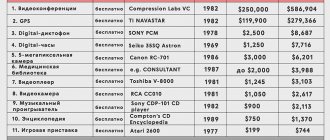In recent decades, social time has outpaced natural time. This means that during the life of one generation, he has to constantly learn, adapt to a dynamically changing world (its social aspect), become more perfect, faster, smarter, and keep up with market demands. Social time begins to flow faster, although the technosphere has simplified life and freed up a lot of time, there is always not enough of it, especially at work. There is hardly anyone who is not familiar with such cases.
There can be many reasons for the shortage: wasting time on conversations, spending time on the Internet, the hope that part of the work can be assigned to employees, work is not a wolf, lack of motivation. We will present a dozen techniques and recommendations, the implementation of which will relieve any person of the question: “How to learn to work faster and more efficiently?”
Priority
Before starting any activity, decide on your priorities: arrange the planned events in order of their importance, starting with the urgent and more significant. You should learn to divide or classify tasks into urgent ones, which must be completed within a specified time frame, and important ones, which must be completed, but are not so limited by the time frame.
Important may be not only those tasks set by a higher-level manager, but also those that directly affect other employees, forcing them to stand idle. As an example: in furniture production, first of all, you should take on cutting the material, so that everyone who will work with it will not be idle, and then - on other work if you have several operations assigned to you.
Concentrate
The goal determines the return you want to receive. The concentration zone determines the activities that are worth spending time on. The goal is the result. The zone of concentration is the path. A goal points to the future you intend to achieve. The concentration zone connects you to the present. In the field of sales, the goal is formulated, for example, the desired income or a certain number of new customers. In production - the amount of cost reduction. Meanwhile, areas of focus in sales may include proactive communication with potential clients, and in manufacturing, areas worth exploring to reduce costs. Of course, these two approaches are not mutually exclusive. You can have both a goal and a zone of concentration. Moreover, some will even insist that both are necessary, since the goal indicates where you are going, and the zone of concentration indicates how you plan to get there.
Ability to refuse
Concentrating on one job or project will allow you to complete it faster, better and more efficiently. The absence of distractions has a positive effect on performance. Jumping between a couple of projects and constant distractions, for example, to help an employee, have a negative impact on the results. But there must be a balance here: the principle of “I work on my own” separates people from the team. Learn to put your interests above the interests of your employees within reasonable limits, and don’t be afraid to refuse them.
Steps
Method 1
Set yourself up for success
- 1
Explore resources.
Sit down and make a list of what you think will be on the exam or test. Then write down any resources available to you to help you learn the information, such as a practice exam or a prep group.
- 2
Create a curriculum.
Give yourself more time than you think you need.
Once you decide what exactly you need to learn and how you will use the resources available to you, create a study schedule. Set aside a period of time in your schedule to devote to studying and stick to the plan.
- 3
Think positively.
You need to think as positively as possible when you take on your studies. If you are emotionally distracted, you will be less productive in learning and absorbing information. Try to think positively and don't compare yourself to others.
- Try telling yourself something positive before you start studying, for example: “I will definitely pass this exam with flying colors!”
If you notice bad thoughts appearing, for example, “I will fail this exam,” stop them. Replace them with positive thoughts, for example: “I will master the material well and pass the exam!”
- 4
Find a quiet place with few distractions.
Where you study affects how productive you are in your studies. If you're constantly distracted by the TV, the internet, or your roommate, you won't study as effectively as you would in a quiet place with fewer distractions.
- Use the library. Find a cozy, less crowded place and start studying.
You can spend the afternoon studying in a quiet café.
- Study while your neighbor is at work or in class, when you are home alone.
Method 2
Use effective methods
- 1
Do intervals.
Long periods of studying without breaks will in no way contribute to effective learning of information. To be productive, you need to take regular breaks while working. Try studying in 30-minute intervals and taking a 5-10 minute break at the end of each interval.
- 2
Test yourself.
Use flashcards and practice exams to help you learn the material more effectively. A practice test will help you learn the information you need much better than just repeating it. You can make cards with text and pictures to test yourself. You can also create a practice test for yourself or ask your teacher to give you a practice exam.
- 3
Use as many senses as possible.
Some people remember information better if multiple senses are involved in the learning process. One way to integrate multiple senses while studying is to read your notes out loud as you rewrite them. This approach uses multiple senses at once and will help you remember information more effectively.
- 4
Play a memory game.
Try using a song, an acronym, or a mnemonic device to help you remember the information better.
Method 3
Use notes
- 1
Rewrite your own notes.
When you rewrite your notes, you are repeating information you are already familiar with. This type of repetition will help you more effectively recall information from the notes you took. To remember them better, try writing down all the information from your notes before the exam.
- 2
Try to explain other people's notes and sketches in your own words.
It's okay to copy other people's notes sometimes, but you need to convey them in words and phrases that make sense to you. Putting information into your own words will help you remember more important things in the future.
- 3
Highlight the information you need to learn.
Create a note from class notes and materials - this is an active way to learn relevant material from class. Take your lecture notes and try to sketch the information you wrote down in class. You can also include information from the book in your outline.
Find time to relax
Practice shows that no matter how interesting an activity is, the concentration of attention on it decreases after 30-60 minutes of immersion in the activity. In view of this, it is recommended to periodically take breaks and switch to other activities.
It’s not for nothing that many industries have 5-10 minute breaks every hour or two.
Depending on the type of activity, this time should be spent on exercise or warming up, or vice versa, sit down and rest a little, drink something or have a snack. The main thing is to radically change your state: if you were sitting at the computer, spend an active break; if you stood at the machine, it’s better to sit down.
The sun is your useful assistant
If you work at a computer every day, you've probably noticed how light affects your productivity and working condition. Too dark lighting has a bad effect on your work efficiency and also impairs your vision.
During the daytime, the best solution is to place your workplace near a window so that the sunlight illuminates you well. This will help increase your productivity by 15%, and you will not feel drowsiness and fatigue.
In addition, sunny color is good for bones and general well-being. Do not forget also that the computer must be placed so that the sun's glare does not fall on it, otherwise it will be uncomfortable for you to work, and you will often be distracted.
If it is impossible to place the work area in a place that is well lit by the sun, or if you are used to working in the evening, you should use a lamp that simulates daylight.
This will also increase your efficiency by 15%, and it will also be much easier for your eyes to perceive such lighting than from conventional light bulbs.
Structuring tasks
It will be useful to be able to group similar tasks according to some criterion and draw up a plan and/or schedule for their implementation. It is better to deal with complex tasks step by step, breaking them into small steps. Thus, progress is noticeable, and psychologically you will know that it is there, no matter how large-scale the task. The approach also allows you to control yourself independently, analyzing ways to achieve a goal, their feasibility, seeing how close you are to the goal, how to achieve it faster, etc.
Achieving every small victory/goal can be rewarded, whether it's a tasty treat, a new item, or an outdoor getaway this coming weekend.
Why are you studying
It is very important to ask this question to yourself, a subordinate, or a child who is mastering the school curriculum. The learner’s motivation and, of course, success largely depend on whether there is a goal and how it is formulated.
In addition, the criteria by which we plan to evaluate learning outcomes must be formulated.
A.L.: It is important to understand why training is needed at work, what I want to learn and what I want to get as a result. A goal must have a deadline, and this is what distinguishes it from a dream.
And you definitely need to think about what restrictions there are, what might interfere if you have any taboos on the way to your goal. For example, you can only study once a week on weekends. Also think about what criteria you will use to evaluate the result, and record intermediate results. So, when a person begins to study vocals, a recording is made of how he sang before classes, a month later, two months later, so that the dynamics are visible. An indicator of dynamics can be time: at first I spent two working days creating this report, and now it takes two hours.
Let's show this with an example. Now I am an accountant-cashier, in six months my colleague, a payroll accountant, is going on maternity leave. And I have the opportunity to take this position if I manage to master this area of work. I make a list of knowledge and skills, split them into six months, and the chief accountant and I agree on how we will monitor the results. We will test our knowledge through testing and solving real practical problems. Also the criterion will be the time I spend on certain operations. Now it takes me two hours to calculate the salary of one employee, and in six months it should take no more than 20 minutes.
A.L.: It is also very important to determine the criterion on the basis of which it will be possible to conclude whether success was achieved or not. Let's say you want to speak English fluently in a year when you go on vacation.
What does it mean to you to speak a foreign language fluently? Ask how to get to Big Ben, or the ability to talk freely, without a dictionary, for example, on such complex topics as nuclear physics?
Why do we sometimes fail to realize our goals? For example, has learning a foreign language been put on the back burner for several years now?
A.L.: We often set too ambitious goals. We don’t think about the risks, about what could stop us on the way to this goal. Are there any internal limitations? Are we ready to conquer this peak? Sometimes it's scary to start
Then it is important to do at least something, even if it is a small, simple action. It happens that there is not enough supportive environment: it is difficult to cope alone
Then the person goes to advanced training, English language courses or to the gym, for example. He comes and understands that he is not the only one who cannot do this, there are people who are ready to learn with him.
No multitasking
Multitasking allows you to complete several tasks overnight, but, as practice has shown, the quality of the result in such cases is mediocre. And this concerns all people, not individuals. Women are more prone to receiving and processing information in several streams, yet focusing bears fruit. Long workouts will allow you to cope well with several tasks, quickly switch from one to another, where without timely rest a person will quickly “burn out”.
The right food for efficiency
Proper food is no less important for effective work than healthy sleep. First of all, it should be beneficial and energize the entire body. If you are used to eating junk food, especially fast food, it is better to give up your habits. The sooner you start eating right, the faster your efficiency will increase by as much as 20%.
Remember that the right food also applies to drinks. Alcohol, carbonated drinks, and excessive coffee consumption also negatively affect your productivity. And if you like to use energy drinks to increase your productivity, you risk getting serious problems with the cardiovascular system.
In addition, it is only the appearance that they improve productivity. In fact, the surge of energy occurs for less than an hour, but after this there is severe inhibition of the body and a drop in efficiency.
Do not forget that in addition to the fact that food should be correct, it should also be regular. Especially don't forget about breakfast. It is what triggers brain activity and saturates our body with energy for productive work.
Let's not waste time
This applies to office workers and other people whose activities are closely intertwined with the computer. An important problem with the low efficiency of their work is spending a lot of time on social networks, watching movies, playing online games and on forums.
If you access the Internet via Wi-Fi or have sufficient Internet traffic, you can surf from a tablet or smartphone, this does not change the situation.
Here, no prohibitions other than working on the network through an Internet browser will save you if a person does not gather his willpower into a fist and independently stop wasting his working time on unnecessary things.
Good health and lifestyle
So far we have looked at task lists, due dates, importance, time saving, but all this cannot be followed if you are sick or lead an unhealthy lifestyle. You probably know about your illnesses, and it would be nice to do prevention; it will take much less time than treatment.
Don't neglect a healthy lifestyle. There is no need to create a cult out of a healthy lifestyle, but no one has canceled the simple rules. Sleeping too much, as well as too little, is harmful. Spending 24 hours at the computer will also have a bad effect on your physical and mental health in the future.
Choose a job you like
You can buy anyone a dog, but you can’t make everyone’s tail wag. If we rephrase the proverb in our own way, it will turn out: money can make anyone work, but not everyone can love what they do.
Based on the fact that most of your free time from sleep will be devoted directly to work and everything connected with it (getting to the workplace, then back home, preparing for the work day), the workplace must be selected in such a way that it is not only financial brought benefits. The work should be enjoyable, arouse interest, and bring pleasure.
Effective Techniques to Increase Productivity
In the pursuit of improving their efficiency at work, almost everyone has tried various efficiency techniques. Time management is trending now, so everyone is trying to find the most effective way to increase productivity and cope with their entire list of plans.
For your work to be truly effective, you must not forget about rest. According to research, 86% of working people believe that rest breaks make them more productive at work.
There is an excellent technique for improving efficiency that many workers use, especially when the amount of work is quite large and sometimes you have to work more than normal. This technique is called Pomadoro. Its essence is that you devote yourself completely to work for 25 minutes, and then take a 5-minute break.
After 4 such circles, you take a 30-minute rest. This technique is very good at improving productivity and unloading the brain. It is ideal if during such breaks you will not be distracted by gadgets, viewing social networks, or email.
Relieve tension from your eyes and spine - get up from your desk, walk around the room or do a little warm-up for your body. This way you can handle a lot of work without feeling overly exhausted.
Plans for every day
If the work is not monotonous, you are faced with a large-scale goal, stretched over time over months, it needs to be fragmented. Moreover, it needs to be broken down to such a level that the notebook, the role of which is now played by organizers, contains entries for every day. Especially if you are not an ordinary worker, but have at least several people subordinate to you.
Daily tasks and self-control will stimulate you, help you achieve small victories, see progress, and allow you to learn how to work quickly. At the beginning of each working day, if you have subordinates, we hold a “planning meeting”, where we summarize the results of the previous day and distribute tasks for today. If the plan is large-scale and involves the same type of work, we conduct such events less frequently, controlling the process and not allowing employees to slow down or even increase it.
How to work quickly?
Keeping up with your responsibilities can be quite difficult, and therefore it is important to identify the most correct approach to the matter.
Plan
First, you need to schedule tasks for the most convenient periods. To avoid possible problems in the future, you should highlight the most important tasks and make them a priority.
It is recommended to come up with notations that will immediately make clear the order and importance of tasks. An example is the use of red and green folders, the color of which symbolizes the urgency of the work planned in the documents.
Set a deadline
You should always plan deadlines so that you have a clearly defined time for work. Having set deadlines allows you not to disrupt the plan and constantly stick to the schedule.
Focus
You should not be distracted while working, as regularly postponing things for short periods of time can lead to dire consequences. A separate problem that is of great importance during work is procrastination, in which a person begins to waste time on various little things instead of completing assigned tasks. You need to talk to your friends and family about not being distracted by them during work hours, and in the future not to mix work with your personal life.
Do not be distructed
Many people use social networks and various resources during work hours, which can lead to significant periods of time being lost unnoticed. It is very easy to get distracted by the Internet and entertainment, so it is advisable to protect yourself from the sites that you use in your free time. While doing your work, you won't miss anything important on the Internet.
Read further: Human personality psychology
Delegate
The delegation of authority practiced by many businessmen is of great importance. The division of labor allows you to achieve your goal with minimal loss of time. All employees have certain powers that must be taken into account. When you come across a task that should be solved by another person with extensive experience and professionalism, it is better to trust him.
When you encounter problems outside of your area of expertise, you may spend too much time and effort trying to figure them out. The less familiar a person is with the process of performing a certain task, the more difficult it will be for him to keep up.
We do important things in the morning
A person works most productively in the first half of the day, and the closer to lunch, the lower his productivity becomes. In the morning, people are full of strength, energy, they are not tired, they don’t think how long is left until the end of the shift, etc. However, after the start of the working day, a person needs to get into the groove and unwind. For everyone and in different situations, this time varies from ten minutes to an hour or even more. Try to get involved as quickly as possible and do the main work in the first half of the day.
How to learn to work quickly and use biorhythms to your advantage is described in the attached video.
Get a good night's sleep
The US military conducted an unusual study: they reduced the amount of sleep soldiers could get at night by an hour. At the same time, young people experienced a decrease in cognitive abilities, as in a state of alcoholic intoxication (according to the American classification - 10th degree) Why We Have to Go Back to a 40-Hour Work Week to Keep Our Sanity. How ironic: you can get fired if you work drunk, but working all night long is considered normal. In both the first and second cases, the employee’s condition is identical.
When you notice that you are working unproductively, ask yourself whether you are one of the 70% of people who regularly do not get enough sleep.
You may be able to work normally after a sleepless night. But it is very unlikely that you look at the world around you with joy and optimism. A negative attitude, poor health, lack of empathy and desire to act are the consequences of overwork.
Most people who have achieved incredible heights in their business understood how important it is to rest. Here are some examples from history:
- Leonardo da Vinci took a nap several times a day if he wanted to sleep less at night.
- The French Emperor Napoleon Bonaparte was never shy about taking a nap during the day. He did this daily.
- Thomas Edison was embarrassed by his habit of sleeping during the day, but he practiced it every day.
- The wife of the American president, Eleanor Roosevelt, went to bed every time before an important speech to replenish her strength.
- Singer Gene Autry regularly slept in his dressing room during breaks between performances.
- US President John F. Kennedy ate lunch in bed every day and then took a nap.
- John Rockefeller - industrialist, philanthropist and first billionaire - slept in his office every day.
- An afternoon nap was a must on Winston Churchill's schedule. He believed that thanks to this habit he managed to accomplish twice as much in a day.
From personal observations: when I started sleeping 7–8 hours a day, I noticed positive changes. I became more productive and managed to get a lot more done than during a 16-hour workday. Who would have thought that sleep is such a great tool for a marketer?
Listen to music
It has been proven that unobtrusive background music promotes better concentration on a work task and faster completion of it. Of course, it is better to give preference to calm compositions rather than fiery hits of pop music. Try listening to classical works or turning on Internet radio with lounge music or chill-out music - both of these trends are characterized by calm, unobtrusive rhythms.










